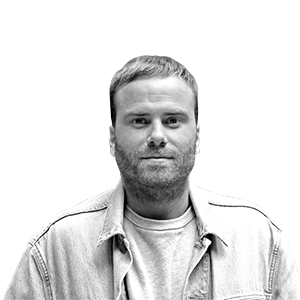The footballer who avoided the void by studying on airplanes
Marc Bertran, a former Catalan player, now makes a living as a wealth advisor.


BarcelonaOn a plane that could take him, for example, to Barcelona to face Leo Messi's Barça, Marc Bertran (Pobla de Segur, 1982) would study. "I have a client friend who reminds me that I was the only one on the plane with the books. We lost a lot of time on the trips, and I wanted to make the most of them. I spent five years in Tenerife, where every two weeks we had to make quite long journeys," Bertran recalls in a conversation with ARA. "Mendilibar, my coach when I played for Osasuna, would sometimes ask me: 'Are you studying for exams, right?' Some days I'd stay up until 1 or 2 in the morning, studying, and he'd say it showed because I was more tired and distracted the next day." But it never goes away.
When he retired as a professional footballer in the summer of 2016, after one final season with Zaragoza, Bertran wasted no time swapping his sportswear for office clothes. By then, he already had his degrees in INEFC and economics under his belt. "I didn't feel the void at all after retiring. I was out of work for exactly a month. Within a month, I was already registered with a company. I was very focused on what I wanted to do in the future; I was trained and had a very clear idea," he says. For years, he has been a high-net-worth manager specializing in footballers. Some of his clients are friends, former teammates who had seen him studying on airplanes.
"The role of the wealth advisor in the world of football has evolved a lot over time. When I was 20 years old, I don't remember anyone introducing me to me or anyone showing any interest in these things. However, towards the end of my sporting career, people came forward to offer this type of service," explains the service, which debuted in the First Division. "Players' awareness of the importance of this role has also evolved quite a bit. I consider it essential because it helps you follow a path and maintain financial stability. Right now, it's difficult to find First Division players who don't have a wealth advisor."
Bertran has clients in Barcelona, Madrid, Granada, Amsterdam, London, and Doha, and is now part of A&G, a private bank. The interview took place at the company's Barcelona headquarters, right on Avinguda Diagonal. "I spend 50% of my time in the office and the other 50% traveling. It's important to meet with clients every three or four months." Having to travel so much isn't new to him because he also had to do it as a soccer player, but now he has children and values the time he spends at home more. "At 30, it was pretty clear to me that the world of finance could be my future. It's good—and I try to discuss this with my clients and friends—for athletes to think about their future. It's not a question of thinking of retirement as something bad. It's inevitable. I insist my clients get training and think about what they want."
But he admits that his handling of retirement is an exception, that retirement and what comes after is a period that, if you're not prepared in every way, can be very difficult: "Nobody prepares us for it. You've been following the same routine as a professional footballer for 15 years and, suddenly, it becomes unknown at 35. Once you're trained and prepared, you can face this new horizon in a more stable way and with greater enthusiasm. It's not just a financial issue, it's a matter of seeking new challenges and motivations." And it also helps to avoid the nostalgia that comes with no longer appearing in the newspapers.
The financial recipe
Despite the millions earned by many footballers, many have ended up bankrupt after retiring. Bertran asserts that footballers are more aware of money these days than they were decades ago, but the danger is always there. What's the recipe for avoiding it? "You have a 15-year horizon in which you can accumulate a lot of money if you do things right. The first step is to encourage savings. It's easy to say, but the more you have, the more you spend. It would be good if they set aside half of your salary each month, and with that, well invested with a very moderate return over 15 years and compounding the income, you can respond." "You also have to say no to any potential offers that aren't appropriate for your profile. I've had teammates who have gotten involved in things that didn't work out. You have to be aware of what you're getting into and the risks involved," he adds.
Bertran has lived in Pamplona since retiring as a footballer and is a member of Osasuna. He still has a close relationship with football, both professionally and as a spectator, but rarely puts on his boots. "I don't play football at all. The year after I retired, I played a few games with friends, but I haven't played much in six or seven years." However, his latest match is recent. Fathers versus sons for Oberena, the football club where one of his sons plays.
